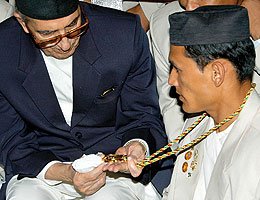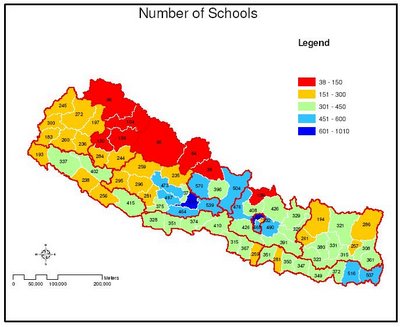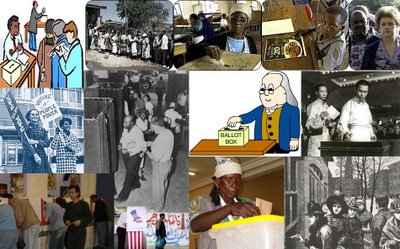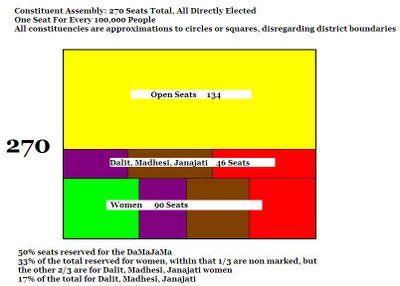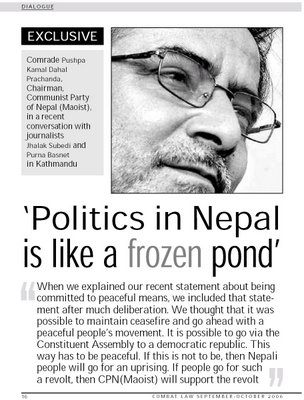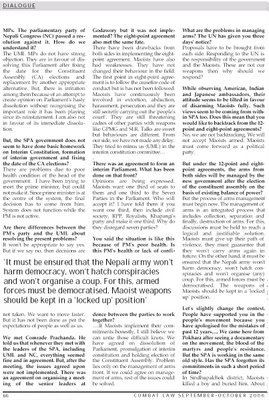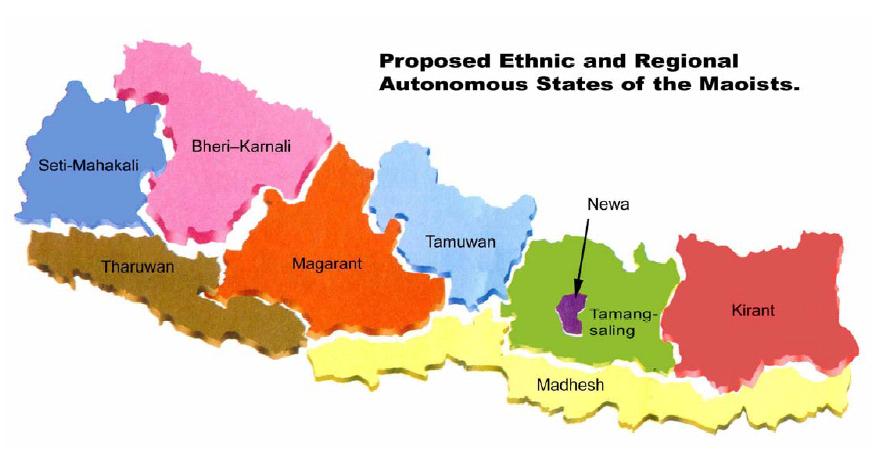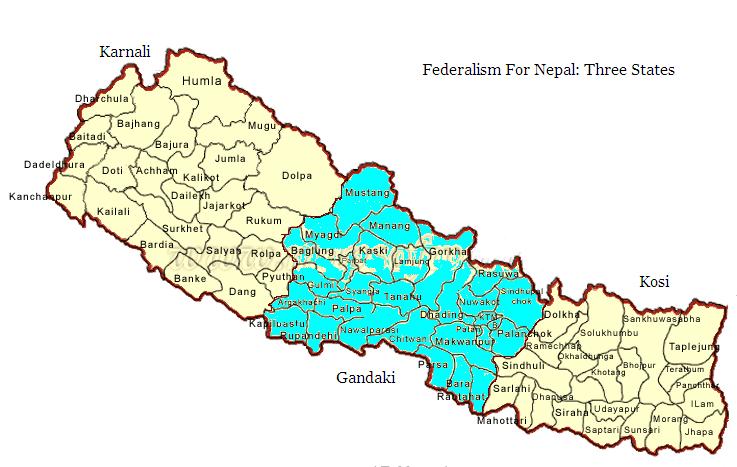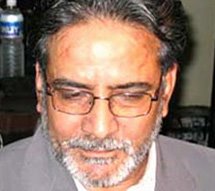
Prachanda on Madhesi: Time to Test
Dr. Bindeshwar Prasad Yadav
Summary
We feel Madheshi should neither approve nor disapprove any promise from any leader; they should see the act and match it with promises. It is time to test. They should keep marching towards the goal; the goal of Political, Defense, Administrative, Economical, Cultural, Social, and Language independence within the boundary of Nepal, where equal opportunity for Employment, Justice, Representation and Right, in honest practice, should be available to all. A unified Madhesh state only, is acceptable. Present proposed division of Madheshi population is against the consciousness of Madheshis. Hindi should be a second national language, because it is the link language for millions of Madheshis. For Madhesh and Madheshi to date democracy is a dream.
Description:
Mr Prachanda’s Assurances and Madheshi’s Grievances
“Recently the Party has passed a concrete resolution to study the Madhesi question from a greater height and to debate, discuss and develop leaders as well to take the revolutionary movement in Madhes to a new height.”
“Expressing sadness over the fact that Madhesis are living like second class citizens, in the country despite being an indigenous group, he said, “Our party started the campaign of liberating Madhesis, and making them masters of the state right from the first year of the people’s war.”
-Maoist chairman Prachanda
Source: eKantipur.com http://www.kantipuronline.com/kolnews.php?&nid=80143
Comment:
“Liberation for Madheshies” Mr Prachanda has been expressed in his lectures, and his party has recognized that;
i. Madheshis are indigenous population in Nepal,
ii. They are treated as second-class citizen in their own country,
iii. He has expressed his sadness over the pitiful situation and
iv. His party has started campaign of liberating Madheshi.
Statements appear to sound very good, as well as, attractive. Here, the concern is: whether his statements would transform into a holistic action with meaningful intention? Present scenarios look better than previously. But it doesn’t reflect Madheshi expectations; for example:-
i. Proposed boundaries of states are not in favor of Madheshi. Such divisions of Madheshi, in spite of a single unified Madhesh state, raise doubts in the peoples’ mind. “However, the question can be asked, is this division motivated to create a divide and rule policy?” Division among Madheshi, on gunpoint, reminds us of the division of family property between two brothers. The poor mother (the wife) lives with one brother, and the powerless father (the husband) lives with other brother. Just for bread, both old heads are compelled to kill their life long emotional attachment; they spend day and night with unheard cry of their souls. Similarly, such proposed state boundaries, will cause negative impact on Madheshi population. But, it is not the final, there is time left, we hope Mr Prachanda and his party will reconsider, and will make state boundary for Madheshi people according to their consciousness. In case, if Madheshi spirit is not respected, then Madheshi leaders should not accept this state boundary proposal till a right amendment comes. Like earlier, government will offer better position to some, and will not address the main issues of the Madheshi community as a whole.
In the world, there are several countries where Indian Diasporas have settled, and those country’s people and their government have with respect, accepted Hindi language. In Trinidad and Tobago, a centaury ago, Indian indenture labourers came; no one is alive among them. Still their children proudly speak Hindi and Bhojpuri. In Surinam, Hindi is second national language while Dutch is the first language. We all know among Madheshi, there are several languages; and Hindi is the only link language. Does it harm national Nepalese integrity, if Hindi is accepted as a second national language because it’s a link lauguage for over ten million in, population? In south India most people don’t know Hindi, they are doctors, engineers, and other professionals; still they are good Indians. Asking to make Hindi as a second national language, does not mean Madheshi are not as good, or as responsible as the non-Madheshis Nepalese citizens.
In this way, issues of Madheshi culture, identity, their proportionate representation in policy making bodies, implementations machinery, and judiciary system, need to be appropriately addressed. It’s very clear that proportionate representation in Parliament, Administrative services, Judiciary services, and Diplomatic representation to foreign countries, and United Nations Offices/ Agencies, that are justified as a demand. Nepal government doesn’t want to dismantle the army. In barracks of Madhesh land, there should be Madheshi youth army. Without this, the environment creates the image of colonization. It looks like a long list, but in reality, the only sufferer is Madheshi since centaury.
Prevailing Political Reality
Out of the royal family, several politicians have recorded their names in the modern history of Nepal, but history of Madhesh does not know anyone, because of all democratic Governments and Prime Ministers that have ignored the Madhesh and Madheshi in the same way. Ex Prime Ministers speak about the agony and suffering of Madheshi, but what did they do when they had responsibility to realize and the power to perform? Nothing! For Madhesh and Madheshi till date, democracy is a dream. It is a royal opportunity for Mr Prachanda and other top leaders to fulfill the promise and be Madhesh maker in the history, when time itself is writing it.
Should Madheshi be dependent?
We feel Madheshi should neither approve nor disapprove any promise from any leader; they should see the act and match with the promises. It is time to test. But, don’t wait and watch. Keep marching towards the goal, the goal of Political, Defense, Administrative, Economical, Cultural, Social, and Language independence within the boundary of Nepal, where equal opportunity for employment, justice, representaytion and right, in honest practice, should be available to all. At the same time, special opportunity should be created for back log Madheshi to bring them into the main development stream of the nation. We all must bear in mind; it is an outlook for true human independence, not to create a separate nation outside Nepal. It will be a great mistake to rely on promises, and not enhance our performance. Madheshi must remember that only Madheshi, no one else, can transform their fate and their future!
Bitter Truth
True integration of Madhesh into unified Nepal depends upon preparation of Madheshi population for independence. Reality of integration of Madhesh into Nepal is directly proportional to the strength of preparation of Madheshi population for independence. By this, we mean, total independence, one free of discrimination and being able to enjoy full human rights inside the united Nepal. They could demonstrate absolute willpower, power of sacrifice, and strength to be independent, and then only, they will be able, in reality, to be integrated with the remaining population of Nepal. Because integrity and respect are possible only between equals, it is simply based on a proverb honest friendship that is only possible between equals.
In The NewsChina positive about extending its railway to border: DPM Oli NepalNews
PLA won't be confined in cantonments before restructuring of state: Prachanda before the state is completely restructured. ..... Prachanda warned that the Maoists would start 'urban uprising' if peace talks failed to give solution to political problems. ...... claimed that some national and international elements were trying to push the Maoists out of the peace process...... asked the party men to be ready for new 'urban uprising' and added that his party would continue the protests unless the state made public the whereabouts of all the disappeared people. He, however, did not mention about the fate of people disappeared by the Maoist rebels. ....... the first condition of the Maoists in the high level talks with the ruling seven party alliance will be the whereabouts of all disappeared people. ...... Maoist second-in-command Babu Ram Bhattrai said constituent assembly election was not possible without restructuring the Nepali Army. ..... also warned that the Maoists would not hesitate from entering into the army barracks to find out the whereabouts of disappeared people if the government failed to do so
SAC to settle ‘Head of the State’ row on Wednesday
NHRC to pressurise govt, Maoists to fulfil demands of Maoist victims
Govt. unaware of arms purchase from Ukraine: Dr. Mahat
Don’t Repeat Afghanistan in Nepal
No arms management before political solution: Maoists
Nepal PM to meet Maoist chief within a week Hindu, India
Nepal rebels chief warns of 'revolution' if gov't delays peace ...
11 Maoists released by India: Rebel sources
Indian help sought to resolve Bhutan-Nepal refugee problem
Separate defence minister a must: Nepal Kantipur Online, Nepal
Maoists not to disarm before reaching agreement on political issues Kantipur Publications
New species of Bird found in Koshi Tappu
China positive on extension of Qinghai-Tibet railway to Nepal: Oli
Bardia flood victims at high risk of epidemic, neonate dies of pneumonia
Bleak prospect for 1st Bote girl to pass SLC
Financing deals for Upper Tamakoshi likely this week
Before Disarming the Maoists
Maoists will lead protests if talks fail to reach political consensus: Prachanda
Deuba to meet Koirala soon to discuss unification issue
Summit meeting this week will decide on king and arms: Minister Gyawali
ँवार्ताबाट टुंगो नलागे जनआन्दोलन’
प्रक्रियाप्रति कूटनीतिज्ञहरूको असहमति
शिखर बैठक 'आउँदो साता'
मन्त्रीको आदेशमा धमाधम नियुक्ति
राजाको सम्पत्ति खोजीमा असहयोग
देउवाले कोइराला भेट्ने
संविधानसभामा प्रतिनिधित्व माग
विद्यालयमा ब्यारेक विद्यार्थी भुइँमा
नेपालद्वारा आक्रोश
बेनी-जोमसोम सडक निर्माणमा अवरोध
शान्ति प्रक्रियामा उपेक्षित जनता
